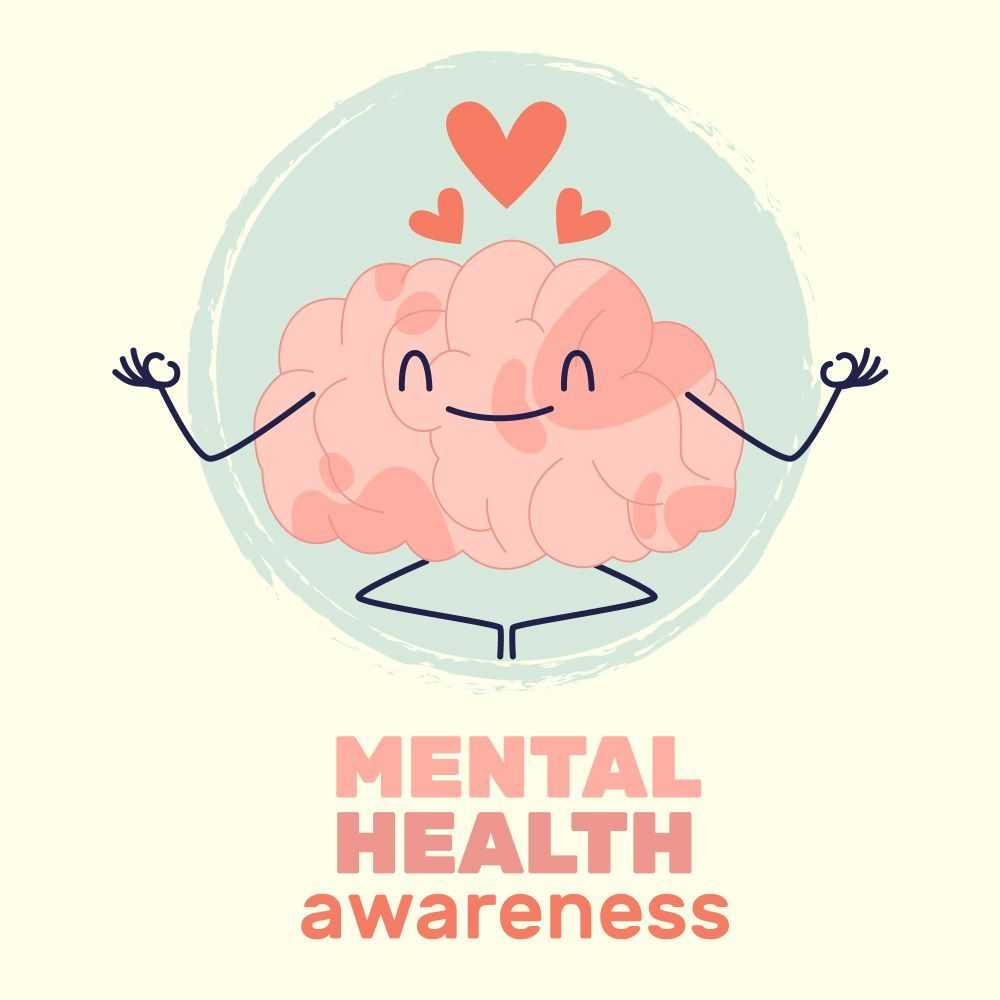Mental Health Awareness Month, observed every May, serves as a crucial period for raising awareness about mental health issues, reducing stigma, and encouraging people to seek help. Mental health is an integral component of overall well-being, yet it remains shrouded in misunderstanding and neglect. This month offers an opportunity to change the narrative, foster understanding, and advocate for better mental health care. Here, we explore the significance of this observance and highlight the top five ways to promote mental health awareness effectively.
Significance of Mental Health Awareness Month

Mental Health Awareness Month is vital for several reasons:
- Breaking the Stigma: Mental health issues are often stigmatized, leading to discrimination and isolation for those affected. This month helps normalize conversations around mental health, encouraging openness and acceptance.
- Educating the Public: It provides a platform to disseminate crucial information about mental health conditions, their prevalence, and treatment options, empowering people with knowledge.
- Encouraging Support and Resources: Highlighting available resources and support systems encourages individuals to seek help, reducing the barrier of silence and shame.
- Advocating for Policy Change: It emphasizes the need for improved mental health policies and increased funding for mental health services, pushing for systemic change.
- Promoting Mental Wellness: It underscores the importance of mental wellness, advocating for self-care and proactive mental health management.
Given its significance, it’s essential to leverage this month effectively. Here are the top five ways to promote mental health awareness.
Leverage Social Media Campaigns

Social media platforms offer a powerful means to spread awareness. Creating impactful campaigns with hashtags, infographics, and personal stories can reach a vast audience. For instance, the hashtag #MentalHealthAwarenessMonth can unify posts and discussions, making them easily searchable and widely seen. Organizations like the National Alliance on Mental Illness (NAMI) often lead the charge with comprehensive social media toolkits that individuals and organizations can use to amplify their messages. For example: A social media campaign featuring short video testimonials from individuals who have successfully managed their mental health conditions can inspire others to seek help and break the stigma.
Host Educational Workshops and Webinars
Organizing workshops and webinars on mental health topics can provide valuable information and support. These events can cover a range of subjects, from stress management techniques to understanding specific mental health conditions. Partnering with mental health professionals to lead these sessions ensures that the information shared is accurate and helpful. For instance, a company can invite a licensed therapist to conduct a webinar on workplace mental health, offering employees strategies to manage stress and promote a supportive work environment.
Create Safe Spaces for Open Dialogue
Encouraging open dialogue about mental health in workplaces, schools, and communities can foster a supportive environment. Safe spaces where individuals feel comfortable sharing their experiences without judgment are crucial. These discussions can be facilitated through support groups, mental health clubs, or regular open forums. Schools can establish student-led mental health clubs where members can discuss their experiences and organize awareness activities, creating a culture of acceptance and support.
Engage in Community Outreach

Community outreach efforts can significantly impact mental health awareness. Partnering with local organizations to host events, distribute informational materials, and provide mental health screenings can raise awareness and offer direct support to those in need. Such initiatives ensure that mental health resources are accessible to diverse populations. A community center can collaborate with mental health professionals to offer free mental health screenings and informational pamphlets during a local health fair, making resources available to a broader audience.
Advocate for Policy Changes
Advocacy is essential for long-term change. Engaging with policymakers to push for better mental health funding, more comprehensive mental health care coverage, and the integration of mental health education in schools can lead to systemic improvements. Public campaigns, petitions, and direct engagement with legislators can drive these efforts. For example, a non-profit organization can launch a campaign to collect signatures for a petition demanding increased state funding for mental health services, demonstrating public support for the cause and pressuring lawmakers to act.
Conclusion
Mental Health Awareness Month plays a pivotal role in promoting mental health understanding and support. By leveraging social media, hosting educational events, creating safe dialogue spaces, engaging in community outreach, and advocating for policy changes, we can collectively contribute to a more informed and compassionate society. Each of these efforts helps dismantle the stigma surrounding mental health and encourages individuals to prioritize their mental well-being, leading to healthier, more resilient communities.
ABM College supports the cause of mental health awareness and engages its students and staff to contribute to it.
Contact us to learn more about our comprehensive programs in health, business, and technology.
Read more articles on our blog.
About The Author

Private Career College
ABM College is a leader in career-focused education, committed to empowering students with industry-relevant skills. With expert instructors and practical training, ABM College delivers high-quality programs in health, business, technology, and more, ensuring graduates are prepared to meet workforce demands. Known for its supportive learning environment and a focus on real-world application, ABM College is a trusted educational partner helping students achieve professional success across Canada.
